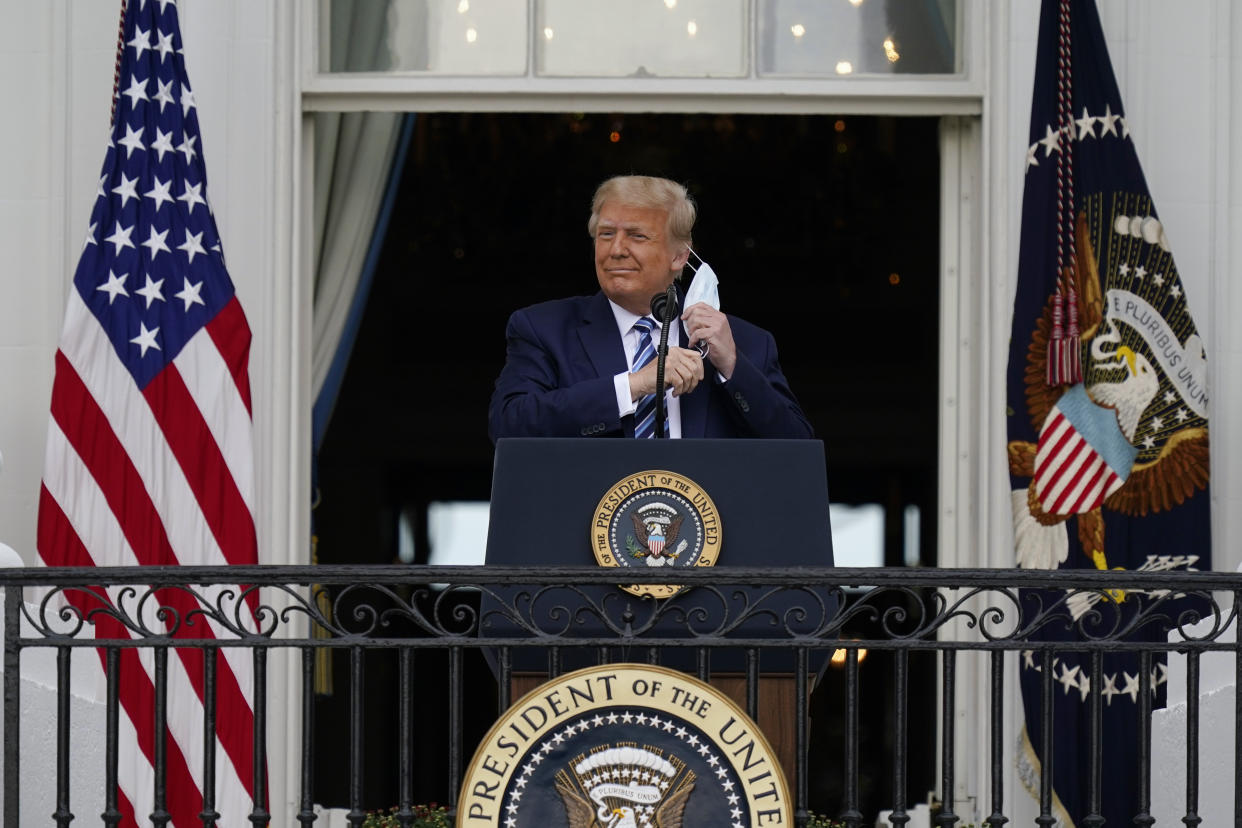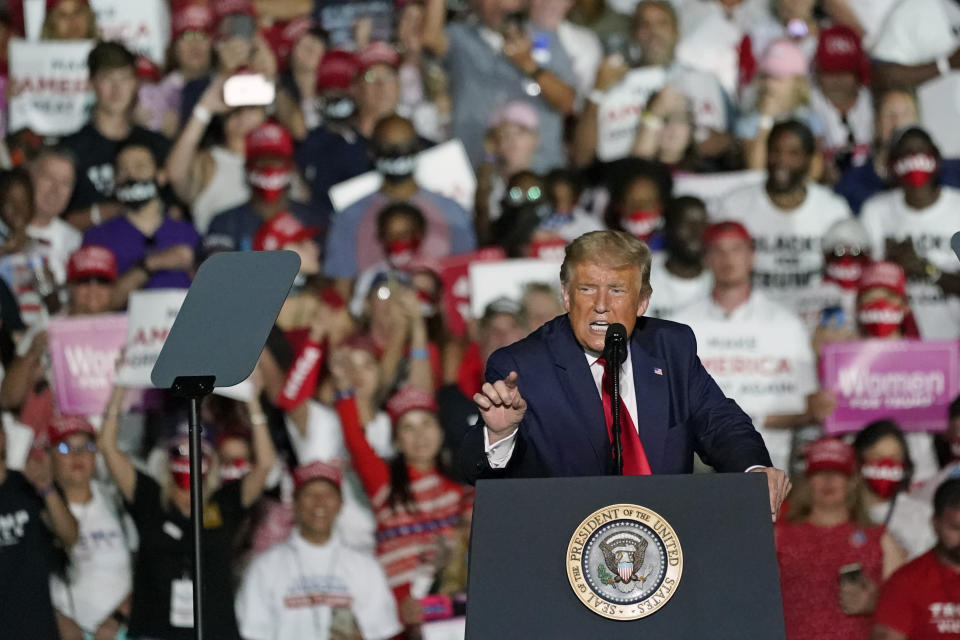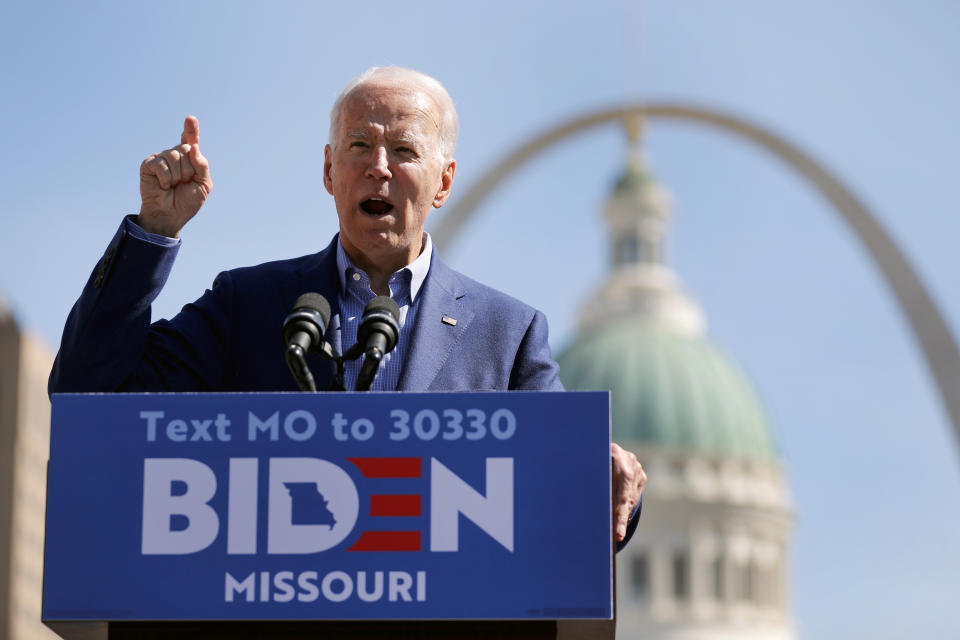How the coronavirus pandemic could affect the US election

If there is one guarantee around the US presidential election, it’s that it will be like no other.
In the same way that it made 2020 unique, the coronavirus pandemic has already had – and undoubtedly will have – far-reaching effects on the US elections.
From Donald Trump’s own recent diagnosis of COVID-19 to the effect the virus has had on America’s population and its economy, as well as the practicalities of campaigning and voting, the disease has infiltrated every element of the election.
Donald Trump’s coronavirus diagnosis
Just 32 days before the 3 November election, Trump and wife Melania tested positive for coronavirus.
The US president was airlifted to hospital on 2 October where he spent several days being monitored and receiving treatment.
At 74, Trump was categorised as high risk but still managed an appearance for his supporters in a motorcade on 4 October.
He was released from hospital after three days to return to the White House and while his campaigning may have been paused slightly, he was soon back on the trail.
Just a week later, Trump held his first rally after his diagnosis, telling a crowd of about 3,000 people in an airport hangar near Orlando, Florida: “They say I’m immune. I feel so powerful.”
The president went on to embark on a tour of the battleground states, with thousands set to attend events in states including Las Vegas, Arizona, Pennsylvania and North Carolina.
Coronavirus also led to the cancellation of the second presidential debate, originally due to take place on 15 October.
It had been suggested that a virtual debate should take place amid concerns over Trump’s COVID-19 diagnosis but he refused, leading to the cancellation of the event.
Coronavirus and campaigning
Even before the president’s diagnosis with coronavirus, the virus had already made the 2020 election different.
Social distancing and fears of the virus spreading meant that the 2020 Republican and Democratic conventions were much more muted occasions than usual, without the usual crowds and rallies designed to whip up support.

Similarly, any rallies have been smaller than previously, with a Trump rally in Tulsa, Oklahoma, in June drawing smaller crowds than were expected and another in Portsmouth, New Hampshire cancelled amid fears of a low turnout.
With rallies and photo calls a no-go for 2020, campaigning for the presidential elections has been forced to take a different turn, leveraging digital methods from emails to virtual events via Zoom, as well as the tried-and-tested method of social media advertising.
According to Syracuse University’s Illuminating 2020 project, the Biden and Trump campaigns spent a combined $65.8m on social media advertising between 1 June and 13 September, with roughly 40% of that spent between 10 August and 13 September.
Trump’s handling of the coronavirus crisis
Coronavirus has challenged every political leader as they try to reassure their electorate in the face of mass deaths, economic uncertainty and unprecedented restrictions on people’s freedom.
By October, the coronavirus death toll in the US had hit 210,000, according to Johns Hopkins University - with critics blaming Trump’s handling of the situation for the country’s high death toll.
The virus has also had a huge effect on economies around the world, and the US is no exception.
While Trump had originally appeared to adopt the slogan, ‘Keep America Great’ for his campaign, he appeared to ditch that in 2020 following the coronavirus crisis and the death of George Floyd, which sparked global unrest amid protests against racism.

The president’s handling of COVID-19 certainly seems to have had an effect, with a Yahoo News/YouGov poll in October suggesting that Trump had lost support of three key demographics in recent weeks.
The poll found that among 2016-2018 swing voters, the president’s unfavourable rating had increased from 50% to 56%.
Also, 57% of voters who disliked both candidates said they disapproved of Trump’s handling of coronavirus — up nearly 10 points since late September.
The president may have hoped that his own recovery from coronavirus would help him in the polls, but that didn’t appear to be the case as election day moved closer.
Coronavirus and Election Day
With concerns remaining high about the spread of the virus, election day will look different to normal.
Concerns about catching COVID-19 – potentially made even more acute by Trump’s own diagnosis – is predicted to see Americans swerve polling stations in favour of postal voting, sparking a controversy of its own.
The US Postal Service (USPS) has already warned that millions of mail-in votes may not arrive in time to be counted on the presidential election day itself, and Trump has previously said he would block extra funding because he opposed mail-in voting - saying it will lead to voting fraud.
While Republicans have been fighting to keep restrictions on voting by mail in place, the Democrats and civil rights groups are fighting to ease restrictions.
So far, the key battleground states of Pennsylvania, Michigan and Wisconsin have all issued rulings that give voters more time to return their ballots to have them counted, saying they will count as long as the ballots are postmarked by election day and arrive in the days after, having a potentially significant effect on the election.

 Yahoo News
Yahoo News 

